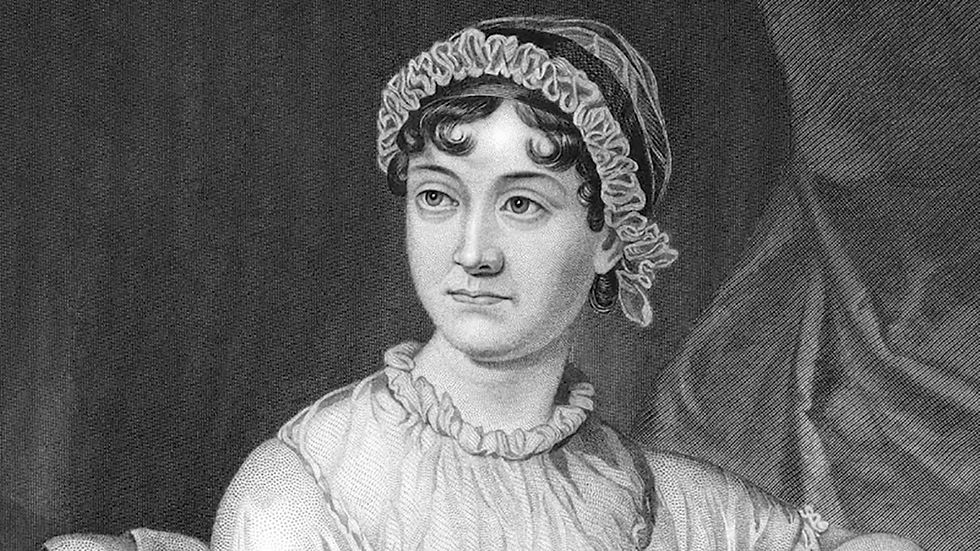The Quiet Radical
- Smitha Balachandran

- Jul 16, 2025
- 3 min read
Two and a half centuries on, Jane Austen still startles the world with her wit, wisdom and unflinching clarity.

Had Jane Austen been born in 1975 instead of 1775, she would have regarded her birthday with the same wry detachment she once reserved for vicars, vanity and the English landed gentry in her classic novels. Perhaps she would have refused the fuss altogether, preferring instead the subtle weaponry of her pen to a ceremonial fanfare. For few authors have captured the quiet warfare of manners and marriage, of class and constraint, quite like Austen. Her novels, deceptively dainty in their surface preoccupations with romance and social ritual, are in fact enduring critiques of a deeply stratified and patriarchal society.
Austen’s genius lies not merely in her command of irony or the precision of her prose, but in her uncanny ability to observe, almost anthropologically, the domestic theatres of late 18th century Georgian England. She noticed everything: the snobbery veiled as propriety, the vulnerability of women cast adrift by inheritance laws, the hypocrisies of clergy and gentry alike. From these observations she spun tales that were bold in sentiment and exquisite in structure, populated by characters whose dilemmas remain strikingly familiar today.
It is no accident that Pride and Prejudice (published anonymously in 1813 though written earlier) - her most celebrated novel - opens with the glinting satire of its now-immortal first line - “It is a truth universally acknowledged, that a single man in possession of a good fortune, must be in want of a wife.” The line oozes irony and subversion. For the women in Austen’s world and still, in many parts of the modern one today, the reverse is rather more urgent: that to be without a husband is to be without position, protection, or power. Elizabeth Bennet and Fitzwilliam Darcy, Austen’s most beloved pair, begin as sparring partners in a society obsessed with fortune and lineage. Their journey – through a splendid Austenian thicket of misjudgment, revelation and moral growth - is at once romantic and radical. Beneath the charm lies a scathing commentary on the commodification of marriage, and the perilous economics of desire.
In Sense and Sensibility (1811), Austen turns her gaze to the emotional spectrum embodied by the Dashwood sisters: Elinor, who is composed and rational; Marianne, impulsive and raw. Their fates, shaped not only by temperament but by the cruel arithmetic of inheritance, reveal the vulnerability of women stripped of financial agency. Marianne’s passionate entanglement with the dashing but duplicitous Willoughby serves as cautionary tale; her eventual union with the steady Colonel Brandon, a man of quiet virtue, reflects Austen’s belief in constancy over charisma.
The class anxieties simmering beneath the surface become more overt in Mansfield Park (1814), where Fanny Price, a poor relation absorbed into her wealthier uncle’s household, occupies a liminal, uneasy space. Her quiet strength and moral rectitude unsettle those around her. Here, Austen is at her most unflinching in exposing the casual cruelties of genteel society towards the less fortunate which is often cloaked, ironically, in the language of kindness.
Persuasion (1817), her final completed work, is a novel suffused with longing and regret. Anne Elliot, overlooked and emotionally stranded, is a heroine of rare subtlety. Her quiet endurance and eventual reunion with Captain Wentworth is not merely a romantic denouement but a vindication of depth over superficiality, of constancy over caprice. The novel breathes with mature reflection, touched by Austen’s own awareness of time’s erosions and reversals.
Her legacy is both literary and humanistic. Alongside the Brontë sisters and other women of her era, Austen wrote in the shadow of exclusion. Yet her voice resounds, clear and undiminished. In an age when women could neither vote nor hold property, she authored characters who dared to think, to doubt, to choose.
To read Austen today is not simply to be transported to another time, but to be reminded of the persistent relevance of her themes - marriage as transaction, class as destiny, and dignity as rebellion. In the drawing rooms and hedgerows of Hampshire, she mapped the contours of the human condition with scalpel-like precision and humour. A quarter of a millennium later, Jane Austen is not merely still read; she is sorely needed.
(The writer is a Mumbai-based research scholar. Views personal.)





Comments